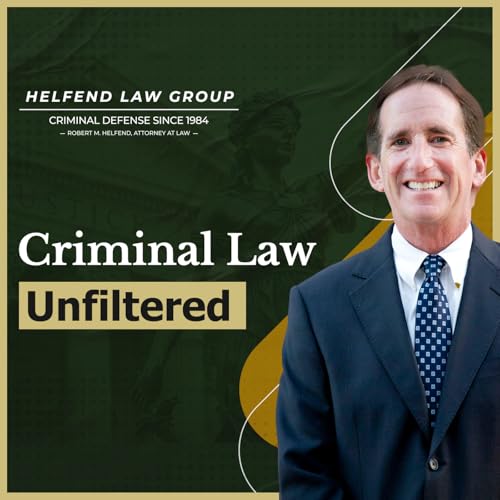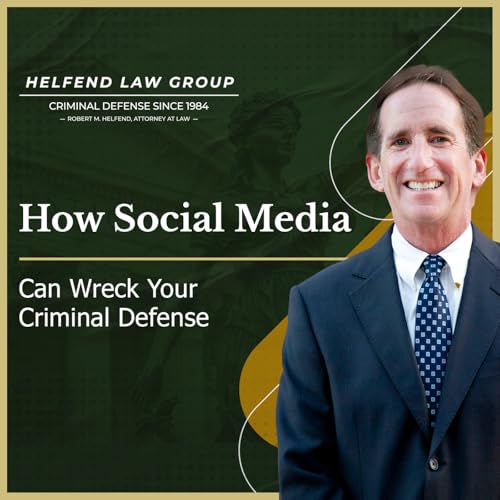
Criminal Law Unfiltered
Échec de l'ajout au panier.
Veuillez réessayer plus tard
Échec de l'ajout à la liste d'envies.
Veuillez réessayer plus tard
Échec de la suppression de la liste d’envies.
Veuillez réessayer plus tard
Échec du suivi du balado
Ne plus suivre le balado a échoué
-
Narrateur(s):
-
Auteur(s):
-
criminallawunfiltered
À propos de cet audio
Criminal Law Unfiltered is hosted by Los Angeles criminal defense attorney Robert M. Helfend, founder of Helfend Law Group. With decades of courtroom experience in serious state and federal cases, Robert provides unfiltered insights into how the justice system really works. Each episode sheds light on the realities of criminal defense, separating TV fiction from the truth inside the courtroom.
Copyright 2025 All rights reserved.
Épisodes
-
 17 min
17 minÉchec de l'ajout au panier.
Veuillez réessayer plus tardÉchec de l'ajout à la liste d'envies.
Veuillez réessayer plus tardÉchec de la suppression de la liste d’envies.
Veuillez réessayer plus tardÉchec du suivi du balado
Ne plus suivre le balado a échoué
-
 20 min
20 minÉchec de l'ajout au panier.
Veuillez réessayer plus tardÉchec de l'ajout à la liste d'envies.
Veuillez réessayer plus tardÉchec de la suppression de la liste d’envies.
Veuillez réessayer plus tardÉchec du suivi du balado
Ne plus suivre le balado a échoué
Pas encore de commentaire


